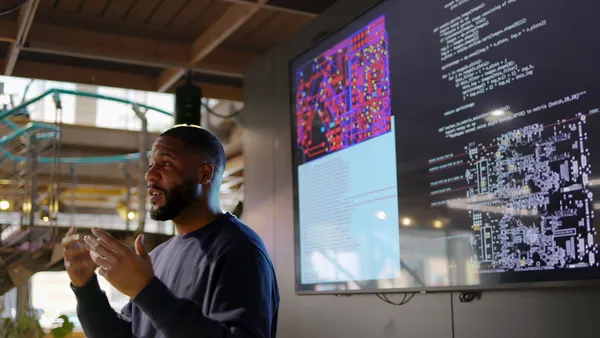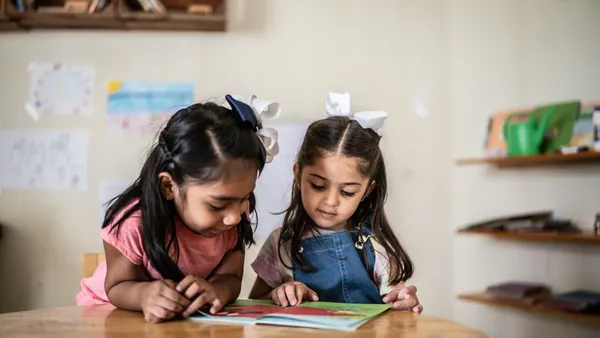Dive Brief:
-
Augmented reality can enhance lessons for students with special needs by eliminating physical barriers and allowing students to overlay virtual images in the real world with sound, touch and sight, according to eSchool News.
-
Educators may also be able to customize AR lessons to make them unique to each learner based on their specific needs, and the technology could narrow gaps in both communication and learning for students with cochlear, speech or hearing impediments.
-
It could also benefit those with coordination issues by exposing them to 3D shapes and geographic locations. Similarly, STEM-focused AR content could benefit those who struggle with math-related impairments like dyscalculia, which may impact as much as 5% to 10% of the population.
Dive Insight:
When schools closed last spring due to the novel coronavirus pandemic, students with special needs faced unique challenges, and many of these students will need to be re-evaluated for regression when they return to in-person learning.
Still, districts were required under the Individuals with Disabilities Education Act to continue offering services, and while some were able to do so on a limited basis in-person, others had to come up with creative solutions.
Schools must, however, be sure all technology and digital resources used in virtual learning or in the classroom is in compliance with IDEA. The U.S. Department of Education provides information about educational resources, such as instructional materials from the Office of Special Education Programs, as well as links to resources from organizations like the National Captioning Institute and National Center on Accessible Educational Materials.
A variety of tech has been spotlighted for improving accessibility. Earcons, for example, translate visual information into specific audio cues that are transmitted through a digital device to help visually impaired students. And there are braille displays that work with touchscreens to support reading and writing skills. At Danvers Public Schools near Boston, a virtual reality tour of the city's downtown area also helps special needs students prepare to transition into the workplace.






 Dive Awards
Dive Awards





